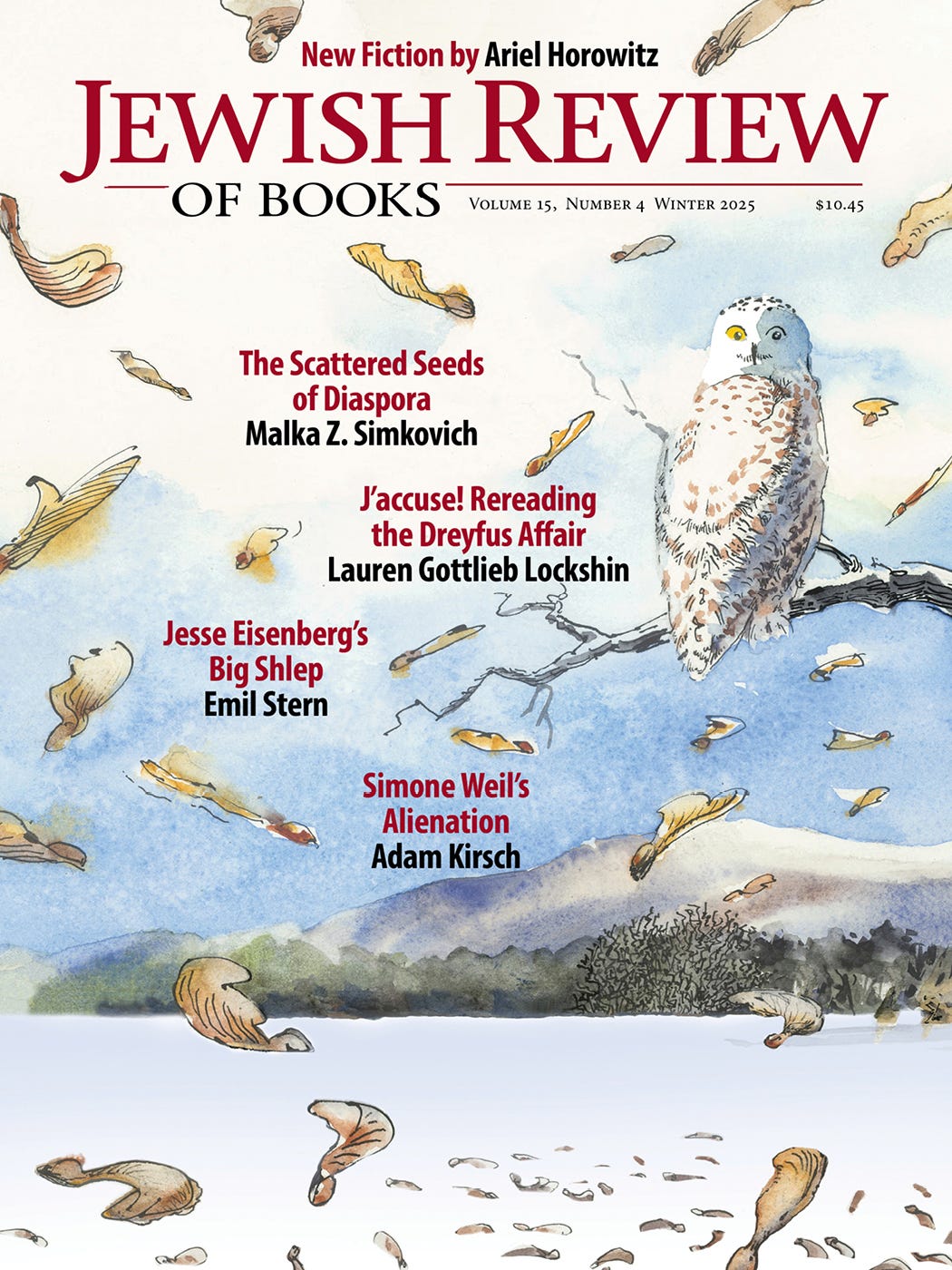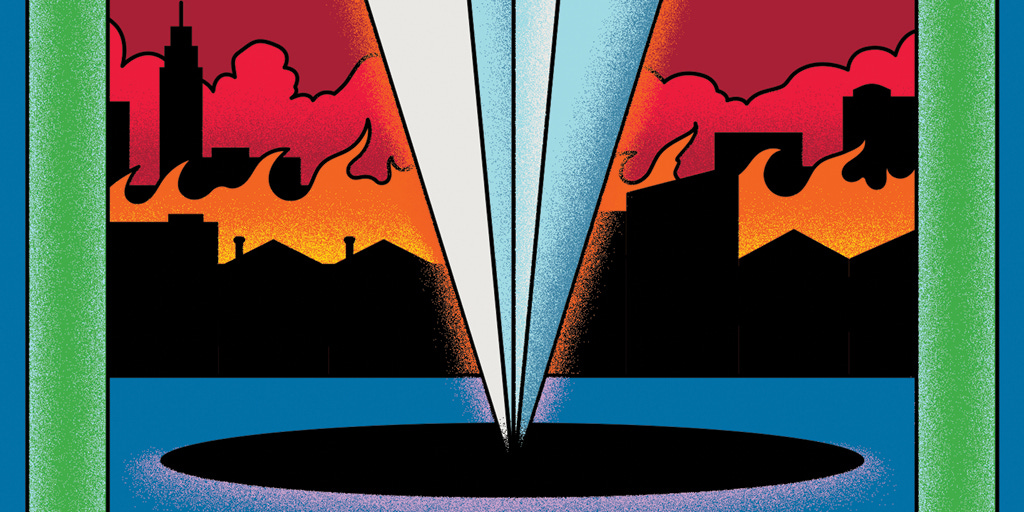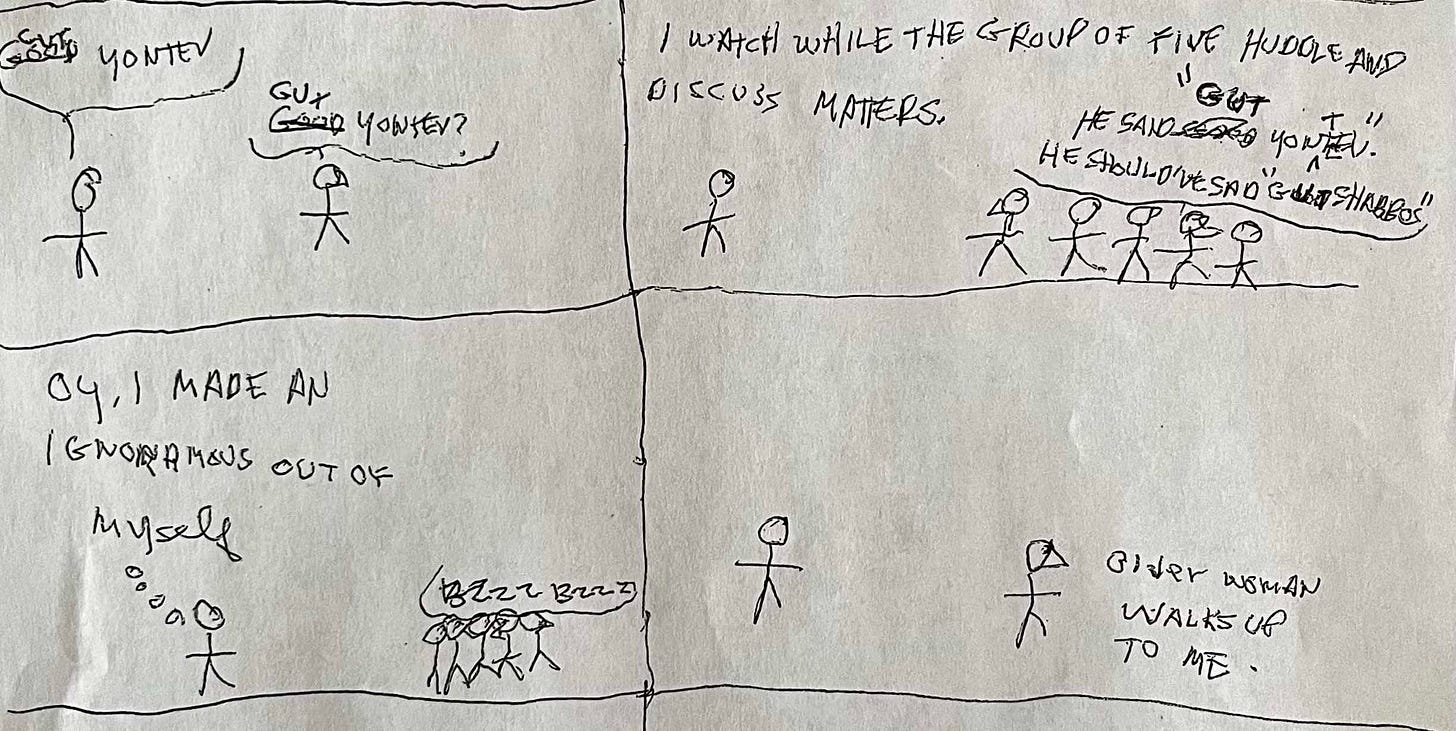The New Winter Issue
From the scattered seeds of diaspora to an apocalyptic new novel and a soccer hooligan with a yiddishe kop, the new JRB is here!
Dear Reader,
Our new winter issue of the Jewish Review of Books is in the mail and up on our homepage. If you’re not a subscriber, now is the time to get the only magazine that features some of the world’s best critics, novelists, historians, and journalists covering the latest books and movies, as well as the deepest Jewish questions. This issue also includes a literary critic unicycling his way through life, a soccer hooligan with a Yiddishe kop, new light on old antisemites, and a very funny excerpt from a prizewinning new Hebrew novel. Subscribe now and you’ll get it all online and in gorgeous hardcopy, plus access to our deep, endlessly diverting archive (on which, see below).
This newsletter is new, in a way, too. Although I’ve been writing you these backstage-at-the-magazine letters for a while, this one is coming from Substack, which will make for a smoother, prettier reading experience, and has some other some nice bells and whistles. For instance, we’ll be rolling out new podcasts here, so stay tuned for that. If you’re already on Substack, make sure to follow us.
Back to the issue at hand: Malka Z. Simkovich, a friend and frequent JRB contributor, who recently took over the Jewish Publication Society (JPS), tells the story of how a group of Judean translators working in Egypt “invented a Greek word that would change the course of Jewish—and arguably human—history.” Who doesn’t love a story about how scholars playing with words makes history? The word in question here is diaspora, which the seventy-two Septuagint translators (give or take) actually coined to translate more than one word in the Bible, and thereby hangs a tale. The Greek word means something like “scattered seeds,” hence Mark Anderson’s elegant cover illustration of maple seeds scattering across a snowy landscape.
Speaking as a diaspora—though not diasporist—Jew, I do feel rather scattered. Here in the Midwest there is snow on the ground, but having grown up in Los Angeles, my heart is in the West, where the hills are on fire and familiar neighborhoods have been destroyed or are under threat. And, then again, it is also in the East, bouncing between the news from LA and the news from Jerusalem. As I write, a deal seems to have been made to free thirty-three of the ninety-four Israeli hostages, including the five female soldiers who were kidnapped from Nahal Oz on October 7, over the course of a six-week ceasefire. They will be exchanged for a much larger number of Palestinian prisoners, many of them serving life sentences for terrorism. Rather than opining about Middle East politics or forest management, for the moment I am just going to try to think about the broken human lives behind these stories and the possibility of redemption. (On the place of redeeming hostages in Jewish tradition, it’s worth revisiting Elli Fischer’s deep dive from last year.)
The experience of being whipsawed from news of one unthinkable event to another reminds me of a passage from the new apocalyptic novel by Benjamin Resnick reviewed with dark humor by my colleague Akiva Schick . The characters of Next Stop are trying to keep up with the news: “A bomb in Zagreb. Refresh. A bomb in Cairo. Refresh. Refresh. Probes enter Exclusion Zone in the Middle East. No Data. No Data.”
Akiva places Resnick’s new novel in “an odd and perhaps revealing micro genre” in which Jewish American authors, from Philip Roth to Jonathan Safran Foer, imagine the destruction of Israel. Twenty-five hundred years after those Jewish translators made up a Greek word, it seems, we’re still worrying in (and about) the diaspora.
Allow me to leave you on a lighter note. Rummaging through our office archives (also known as the boxes in the corner across from the coffee machine), I ran across a plain sheet of paper with these stick figure drawings from the famous comic book writer—and talk show guest who David Letterman loved to hate—Harvey Pekar.
When I was launching JRB in 2008-9, a friend who knew Pekar told me he was at least as grumpy as Paul Giamatti had played him in the biopic American Splendor, but fun to talk to. So, I called Harvey up and asked him to do a comic strip review on the back page. It turned out, to my surprise, that what this meant was him drawing a stick-figure story board for his artist-collaborator. The result was a somewhat grudging but fun review of his friend/collaborator/rival R. Crumb’s Book of Genesis, which featured an inset of Bluto kicking Popeye in the rear-end (“ump!”)—ostensibly because Crumb had been influenced by the Popeye artist Elzie Segar. It appeared in our first issue, beautifully drawn by Tara Seibel.
The stick figures above are actually from our second issue about an awkward encounter Pekar had with some frum neighbors in Cleveland Heights. Not long after that, Harvey passed away. He is buried down the street from our office at the Mayfield Cemetery, near fellow hometown hero Eliot Ness.
All of which is to say, that the JRB is an honor and a joy to edit—and just as much fun to read. So, enjoy the new issue and stay tuned . . .
Best,
Abraham Socher, Editor
Jewish Review of Books
PS: When we were undergrads at UCLA, my wife Shoshana and I used to teach Hebrew School at Kehillat Israel in Pacific Palisades. Although it now stands on a ravaged block of Sunset Boulevard, it still stands. Click here if you’d like to contribute to their Palisades Fire Assistance Fund. Our friends at Chabad of Topanga have also been in touch, and you can click here to help their community.










